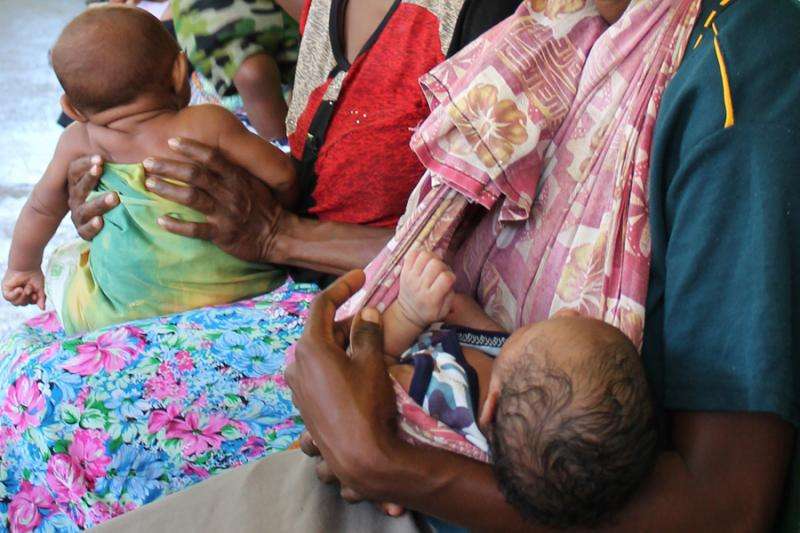Indigenous women journeying though pregnancy with the added complication of rheumatic heart disease have the best outcomes with collaborative and culturally appropriate care according to the lead researcher in a four-year study of the issue.
"Worldwide, rheumatic heart disease remains a marker of health inequality and inequity," said Professor Elizabeth Sullivan, public health physician, epidemiologist and Associate Dean (Research) in the UTS Faculty of Health.
"It is the paradox of rheumatic heart disease (RHD) in Australia and New Zealand that less than four in 10,000 women giving birth in Australia have rheumatic heart disease – yet more than two per cent of Aboriginal and Torres Strait Islander women in the Northern Territory journey through pregnancy with this condition each year. A similarly high prevalence is seen among Maori and Pacific Islander women in major urban centres of the North Island of New Zealand."
Rheumatic heart disease is a rare, under-researched condition, where chronic damage to the heart valves is caused by acute rheumatic fever, a bacterial infection in the throat or skin.
"The serious complications of RHD in pregnancy are often because of undiagnosed disease or an increased (up to 50 per cent) cardiac workload during pregnancy exacerbating already diagnosed RHD in a compromised heart," Professor Sullivan said. "Conversely, early diagnosis and careful monitoring during pregnancy can optimise good outcomes for mother and baby.
"We are in the last year of a four-year National Health and Medical Research Council-funded research project that has used the Australasian Maternity Outcomes Surveillance System (AMOSS) to investigate RHD in pregnancy.
"AMOSS is an Australian and New Zealand wide research system that studies rare and serious conditions in pregnancy and has allowed us to study the impact of the disease in pregnant women and the health systems' response.
Professor Sullivan said that, unsurprisingly, the features of care that promote good outcomes for pregnant women with RHD align with initiatives to make maternity services more accessible and culturally appropriate.
"Services such as the NSW Aboriginal Maternal and Infant Health Service build on existing available maternity services whilst adding an innovative approach, underpinned by culturally appropriate and collaborative care, with Aboriginal and non-Aboriginal midwives and Aboriginal health workers caring for women through pregnancy.
"We are discovering many different stories and clinical pictures of women. A young Wiradjuri woman from western NSW has a very different story from a Yolngu woman in remote Top End of Australia where English is a fifth language, and different again from an older refugee woman from Sudan, or a Maori woman in urban Auckland.
"But for all, features of care including early (ideally pre-pregnancy) diagnosis of RHD, better access to diagnostic and treatment services, collaborative care and appropriate education and pre-pregnancy counselling are all critical factors in maximising good outcomes for women with RHD in pregnancy.
"Further research is needed on RHD in pregnancy, however findings from our study reinforce the need to improve health systems that support improved collaboration and communication. Effective models of care demand better monitoring of the history and treatment of women with RHD in pregnancy."
More information: A national population-based study of rheumatic heart disease in pregnancy [ 2012 - 2015 ]. researchdata.ands.org.au/natio … ase-pregnancy/110326
Provided by University of Technology, Sydney




















